How is AI revolutionizing healthcare? What impact does AI have on the way we diagnose, treat, and manage health conditions? These are questions that have been at the forefront of healthcare conversations in recent years.
As the digital era accelerates, the healthcare sector is embracing artificial intelligence (AI) to enhance service delivery, improve patient outcomes, and reduce operational inefficiencies. But how far has this transformation really gone?
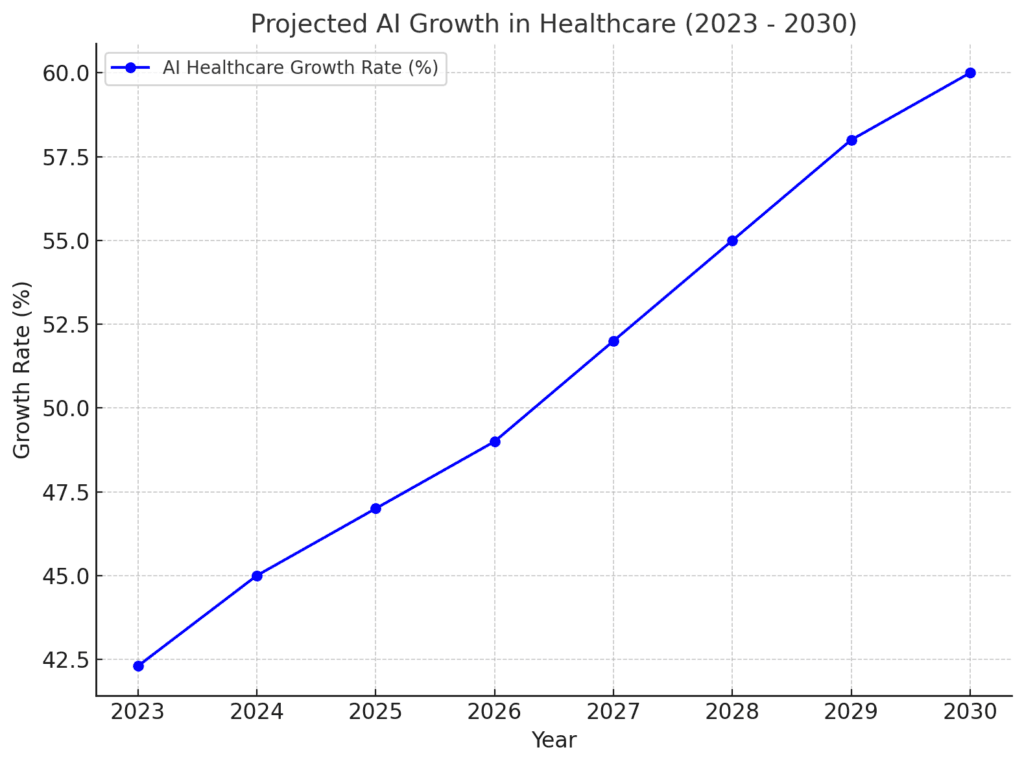
Recent studies show that AI adoption in healthcare is poised to grow at a compound annual growth rate (CAGR) of 42.3% from 2023 to 2030. This explosive growth is driven by AI’s ability to reduce errors, streamline administrative tasks, and deliver more personalized care.
AI-powered tools are already helping doctors detect diseases earlier than traditional methods, with AI-assisted diagnostic tools showing an accuracy rate of up to 95% for certain conditions like cancer and heart disease.
Also read: The role of Machine Learning in Doctor app development!
Moreover, 47% of healthcare executives believe that AI is pivotal for solving some of the industry’s biggest challenges. Including patient data management and optimizing treatment plans.
Beyond its clinical applications, AI is transforming healthcare delivery across the board, from virtual consultations through telemedicine to robotic surgeries that provide greater precision and quicker recovery times.
Telehealth alone, which heavily relies on AI, is expected to reach a market size of $185.6 billion by 2026, reflecting the growing demand for remote healthcare solutions.
But while the promise of AI in healthcare is immense, it’s important to understand not only how AI is shaping the industry today but also the roadblocks and ethical considerations that accompany these technological advancements.
As we delve into this revolution, we will explore the profound ways AI is reshaping medicine delivery, offering both groundbreaking opportunities and significant challenges.
As a top custom software development company that holds expertise in creating healthcare apps, we want you to join us as we take a closer look at AI’s evolving role in the healthcare system and how these digital solutions are enhancing service delivery in a rapidly changing world.
What is AI in Healthcare?
Artificial Intelligence (AI) in healthcare refers to the use of advanced algorithms and machine learning models to simulate human intelligence processes.
These systems are designed to perform tasks that typically require human intervention, such as diagnosing diseases, analyzing medical data, predicting patient outcomes, and even assisting in treatment planning.
AI in healthcare leverages vast amounts of data, medical research, and clinical knowledge to improve decision-making, automate routine processes, and optimize patient care.
At its core, AI in healthcare aims to make processes more efficient, accurate, and cost-effective. For example, machine learning (a subset of AI) enables healthcare systems to “learn” from historical data, improving predictions over time.
Also read: How is Machine Learning revolutionizing patient care with AI-powered healthcare solutions?
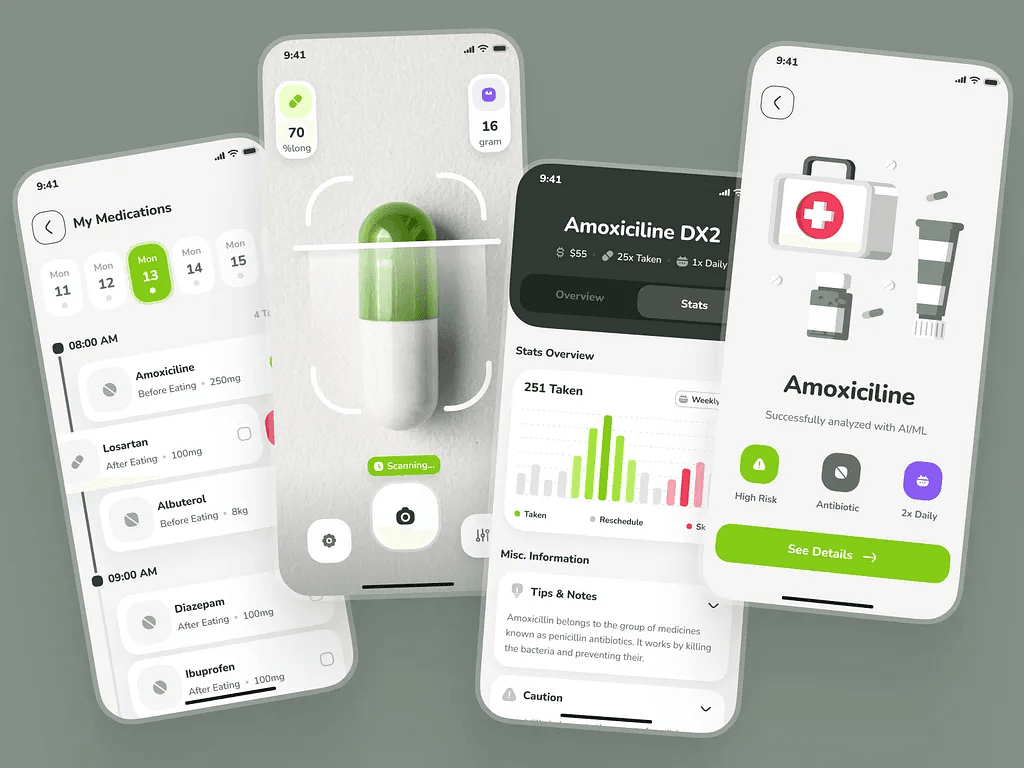
Deep learning algorithms, another form of AI, are used to interpret complex datasets such as medical images, genomic information, and electronic health records. This means AI can support clinicians with real-time insights and predictions, ultimately leading to better patient outcomes and reduced human error.
AI in healthcare is not just limited to administrative tasks or simple decision-making; it extends to areas like robotics, diagnostics, and drug discovery. Healthcare AI systems can automate repetitive tasks like scheduling and billing, enabling healthcare providers to focus on more critical aspects of patient care.
Additionally, AI is becoming increasingly adept at diagnosing diseases like cancer, heart disease, and neurological conditions with greater precision than traditional methods.
According to a report by Accenture, AI applications in healthcare have the potential to save the industry up to $150 billion annually by 2026. This is primarily due to AI’s ability to streamline processes, enhance diagnostics, and improve treatment accuracy.
As AI continues to evolve, its applications are becoming even more expansive and sophisticated, paving the way for smarter, more efficient healthcare systems.
The Role of AI in Enhancing Healthcare Services
Artificial Intelligence is transforming healthcare by offering innovative solutions that improve the quality and efficiency of care. AI’s role in enhancing healthcare services is vast, ranging from improving clinical decision-making to revolutionizing patient care management. Below, we will explore the key areas where AI is making a significant impact in the healthcare sector.
Streamlining Diagnostics
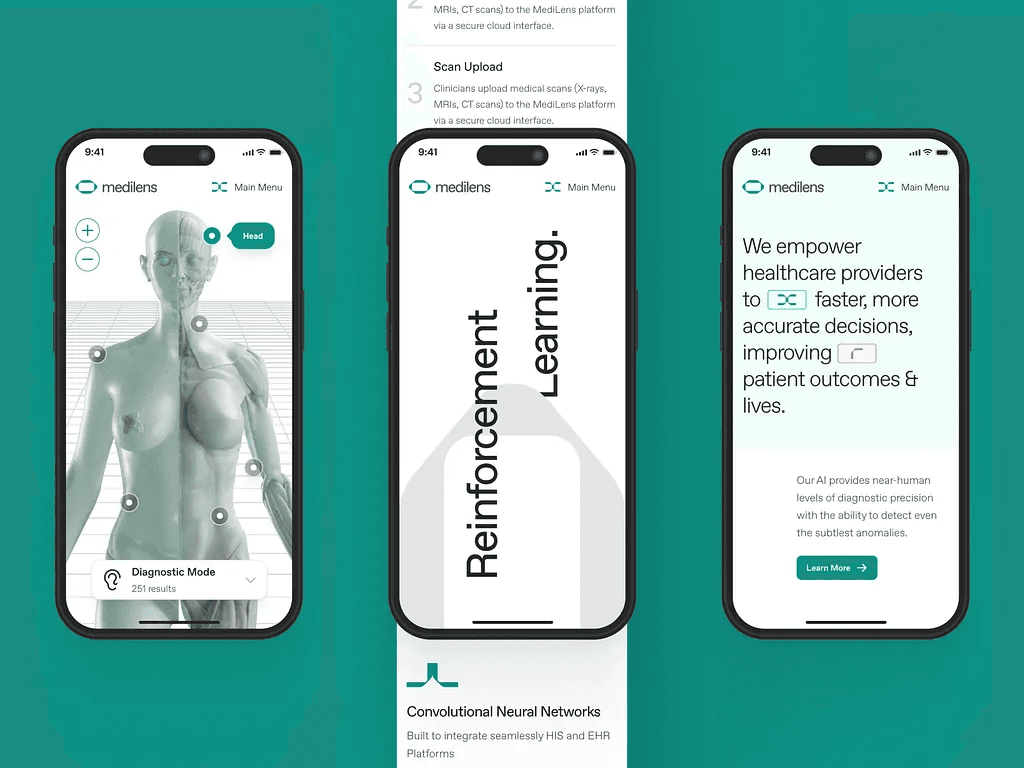
One of the most critical contributions of AI in healthcare is its ability to improve diagnostic accuracy. AI systems can analyze large datasets, such as medical images, lab results, and patient histories, far more efficiently than traditional methods.
For instance, AI algorithms have been shown to outperform human doctors in interpreting certain diagnostic images. Such as detecting signs of cancer in mammograms, skin lesions, or CT scans. According to a study published in Nature Medicine, AI systems have demonstrated diagnostic accuracies of up to 94% for breast cancer screening. While human radiologists achieved only 88%.
AI helps clinicians to quickly identify anomalies in medical images, reducing the chances of misdiagnosis and enabling earlier interventions. By automating the analysis of medical imaging, AI reduces the workload for healthcare professionals, allowing them to focus on more complex cases. This is particularly beneficial in understaffed settings or for conditions requiring rapid intervention.
Personalized Treatment Plans
Another significant area where AI is making strides is in personalized medicine. AI uses vast amounts of patient data, such as genetic information, medical history, and lifestyle factors, to develop individualized treatment plans.
This approach enables healthcare providers to tailor interventions to the unique needs of each patient, increasing the likelihood of successful outcomes.
AI can also assist in identifying the best drug therapies based on a patient’s genetic makeup.
By analyzing clinical trial data and patient records, AI systems can predict which medications are likely to be most effective, reducing the trial-and-error method often seen in traditional treatments.
This is particularly important for complex conditions like cancer, where treatment regimens can be highly individualized.
Real-Time Health Monitoring
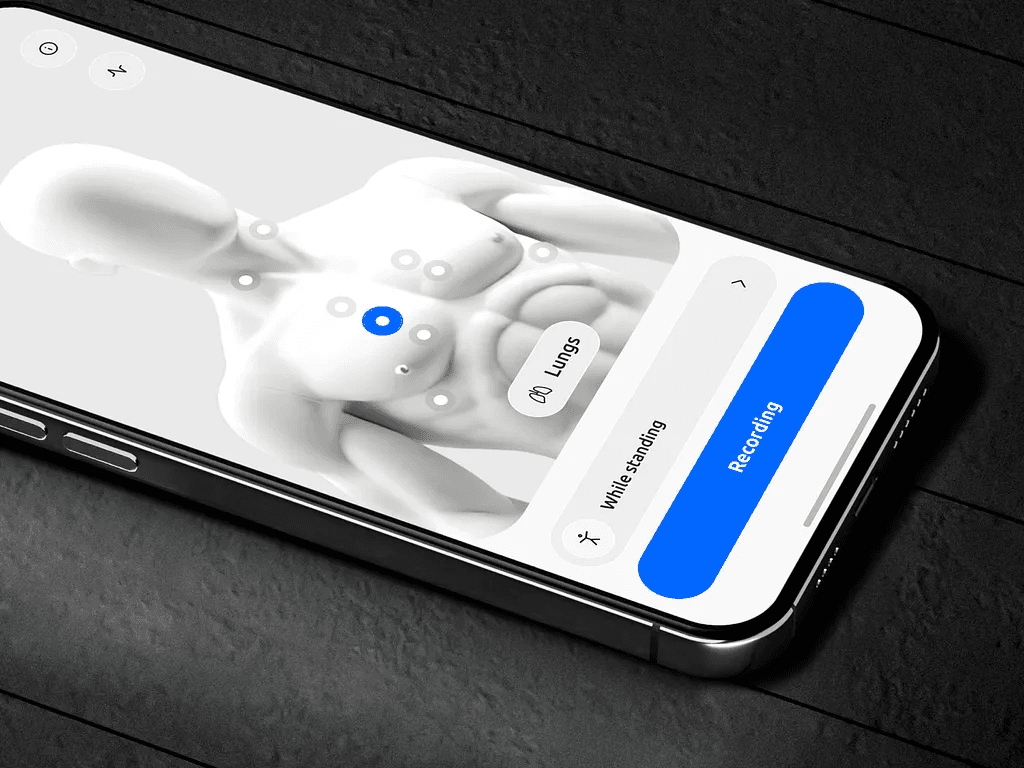
AI-powered wearable devices are increasingly being used for real-time patient monitoring. These devices, which can track vital signs such as heart rate, blood pressure, and glucose levels, help healthcare providers to monitor patients more effectively, especially those with chronic conditions.
The data collected is analyzed by AI systems, which can detect potential health issues early and alert both patients and healthcare providers.
For example, AI-enabled devices like the Apple Watch can detect irregular heart rhythms and send notifications if a patient’s heart rate is abnormal.
Similarly, AI-powered apps can analyze the data from continuous glucose monitors to predict blood sugar fluctuations in diabetes patients. This real-time monitoring can significantly reduce hospital readmissions and improve long-term health outcomes by allowing for timely interventions.
Optimizing Healthcare Operations
AI is also playing a vital role in improving healthcare operations. By automating administrative tasks like appointment scheduling, billing, and data entry, AI frees up valuable time for healthcare professionals, allowing them to focus on patient care. Moreover, AI systems can optimize the flow of patients within healthcare facilities, predict staffing needs, and ensure that resources are allocated efficiently.
AI tools can predict patient volume, enabling hospitals to anticipate periods of high demand, and streamline patient scheduling. For example, predictive models can forecast emergency room admissions based on historical data and seasonal trends, allowing hospitals to prepare in advance, reduce waiting times, and improve patient satisfaction.
Enhancing Telemedicine
Telemedicine is another area where AI is making an impact. Virtual consultations have surged in popularity, particularly during the COVID-19 pandemic, and AI is helping to make these services more effective.
AI-powered chatbots and virtual assistants can help patients triage their symptoms and provide medical advice based on their responses.
These systems can ask relevant questions, analyze patient input, and suggest next steps, from self-care to booking a consultation with a healthcare provider.
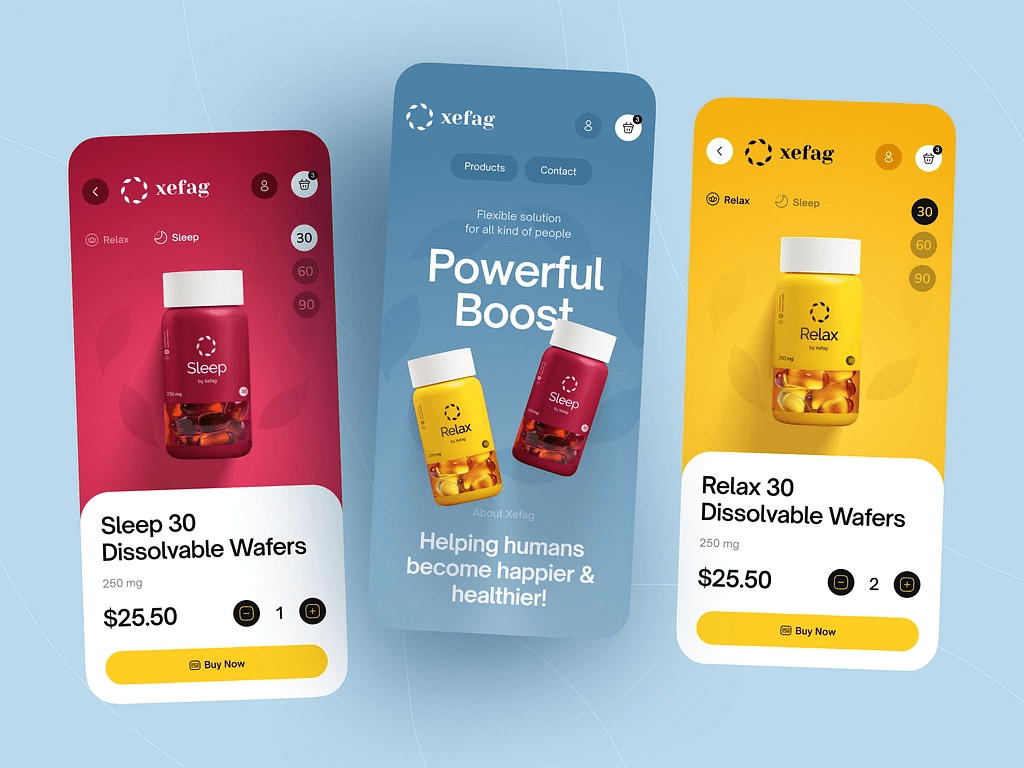
Telemedicine services, backed by AI, are becoming more reliable, efficient, and accessible, especially for underserved populations who may not have easy access to healthcare facilities. These digital solutions are making healthcare more flexible and convenient, helping patients receive care remotely without the need for in-person visits.
Continue reading about the Telemedicine app development– The future of healthcare!
Reducing Healthcare Costs
AI in healthcare has the potential to significantly reduce operational costs. By automating repetitive tasks, improving diagnostic accuracy, and optimizing treatment plans, AI helps healthcare providers deliver care more efficiently. AI’s ability to predict health outcomes and identify high-risk patients means that preventive care can be more effectively targeted, reducing the need for costly treatments down the road.
According to a study by Accenture, AI applications could save the healthcare industry up to $150 billion annually by 2026, with much of this savings coming from improvements in clinical care, patient monitoring, and operational efficiency.
This reduction in costs benefits not only healthcare providers but also patients, making healthcare more affordable and accessible.
Want to find out the cost to develop a healthcare app in the USA? Don’t have to wander around, just jump to our blog!
Improving Health Equity
One of the often-overlooked advantages of AI in healthcare is its potential to promote health equity. AI technologies can bridge the gap in healthcare access, especially in rural or underserved areas.
Telemedicine, for instance, allows patients to receive quality care remotely, overcoming barriers like geographical isolation and limited access to specialists.
AI systems can also help reduce healthcare disparities by ensuring that clinical decisions are based on data, rather than human bias. By using diverse datasets to train AI models, healthcare systems can make more equitable decisions, helping to ensure that all patients, regardless of background or socioeconomic status, receive the best possible care.
Let’s take a closer look at AI’s impact on diagnostic processes, where the most visible and immediate changes are occurring.
AI in Medical Imaging
Medical imaging has long been a cornerstone of diagnostic medicine, allowing healthcare providers to detect abnormalities in tissues, organs, and bones.
However, the interpretation of medical images is complex and requires a high level of expertise, which can sometimes lead to human error. AI is revolutionizing this process by using machine learning algorithms to analyze medical images with remarkable accuracy.
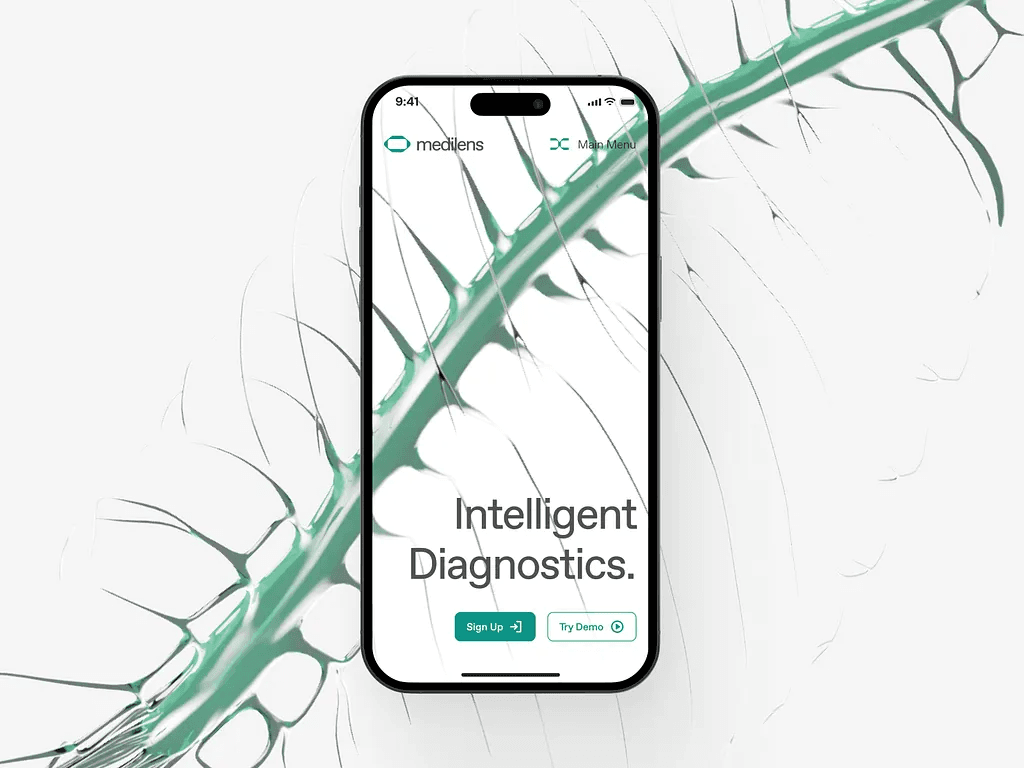
For example, in the realm of radiology, AI algorithms can be trained to identify anomalies in X-rays, CT scans, and MRIs. AI systems can detect early signs of conditions such as cancer, fractures, neurological diseases, and cardiovascular problems, often spotting abnormalities that may be overlooked by the human eye.
A study published in JAMA Network Open found that AI in mammography screening outperformed human radiologists in terms of both sensitivity and specificity, with AI detecting more than 90% of cancers compared to the 80% detection rate of radiologists.
AI is particularly valuable in regions with a shortage of radiologists, as it can assist in interpreting medical images remotely. Making it easier for healthcare providers in underserved areas to access advanced diagnostic capabilities.
By providing highly accurate diagnostic results quickly. AI in medical imaging ensures that patients receive timely interventions, leading to better health outcomes.
Early Disease Detection
AI’s ability to analyze large amounts of data in real time makes it an invaluable tool for early disease detection.
Machine learning algorithms can analyze patient histories, lab results, medical images, and genetic data to predict the likelihood of certain diseases before they become symptomatic.
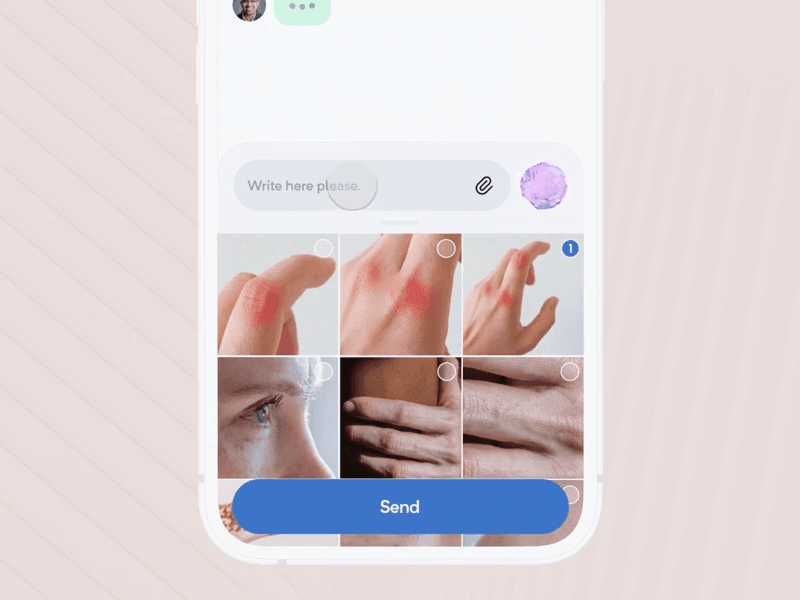
This predictive capability can lead to early interventions, which are often more effective and less costly than treating diseases in later stages.
For example, AI models have been developed to predict the onset of diseases like Alzheimer’s, diabetes, and cardiovascular conditions. Often years before traditional tests would reveal any signs of the illness.
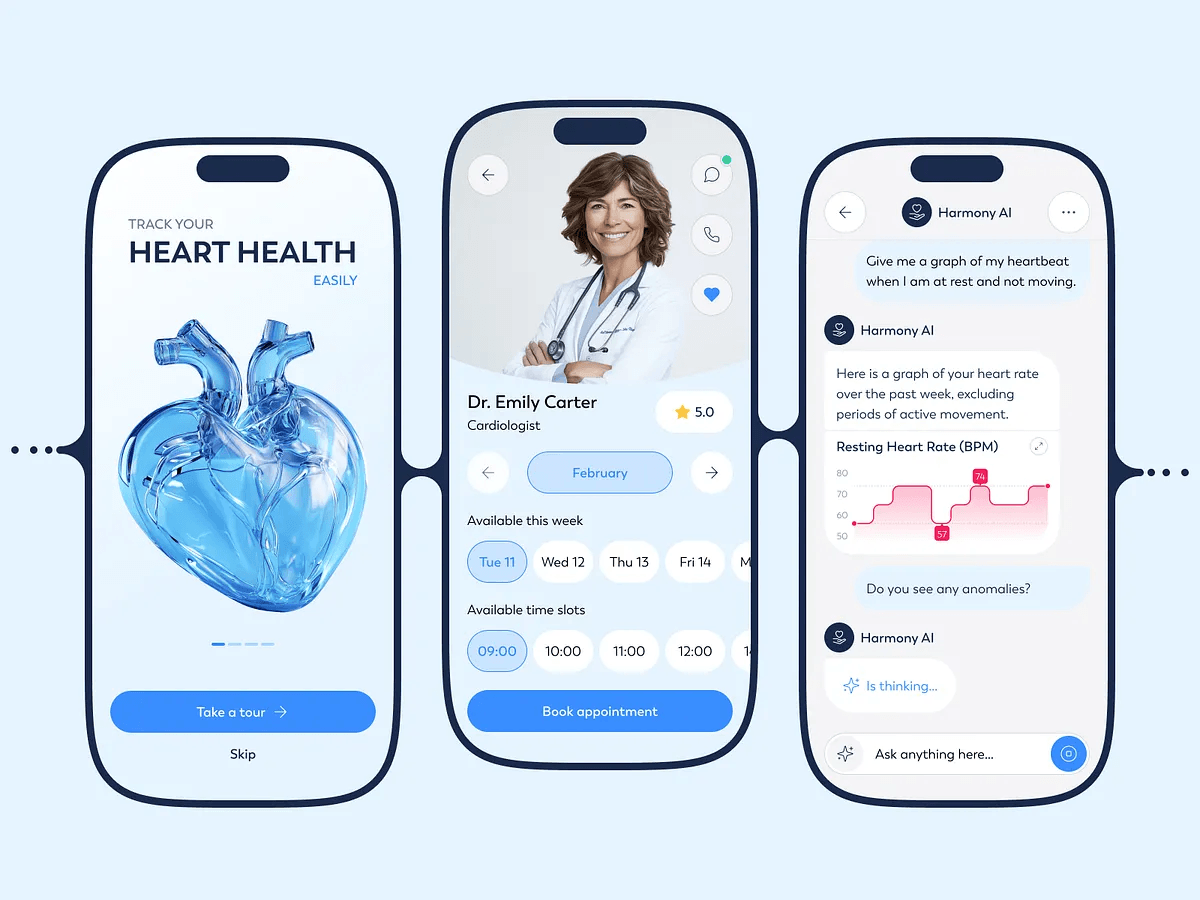
Early detection is crucial for improving survival rates and enhancing the effectiveness of treatments. Especially in diseases like cancer, where the chances of successful treatment increase dramatically when caught early.
In the case of diabetes, AI algorithms can analyze patient data. Such as blood glucose levels, lifestyle factors, and family history. To predict the likelihood of developing type 2 diabetes.
Similarly, AI can monitor heart rate patterns and other biomarkers to identify early warning signs of heart disease. Early diagnosis and treatment are vital in managing these conditions and preventing long-term complications.
AI in Genomic Medicine
The integration of AI with genomics is another exciting development in healthcare diagnostics. By analyzing vast amounts of genomic data, AI can identify genetic mutations and variations. That contribute to specific diseases, providing valuable insights for personalized treatment plans.
This is particularly beneficial in oncology, where cancer treatment is becoming increasingly tailored to the genetic makeup of both the patient and the tumor.
AI models can help identify rare genetic disorders, recommend the most effective treatment strategies. And even predict how patients might respond to certain therapies based on their genetic profile.
In fact, AI is already playing a crucial role in the development of precision medicine. Where treatments are designed based on an individual’s unique genetic code.
For example, AI tools are being used to analyze next-generation sequencing (NGS) data in oncology. Helping clinicians identify mutations that could indicate the presence of certain types of cancer. Such as breast, lung, or colorectal cancer.
By pinpointing these mutations, AI can assist in selecting targeted therapies that are most likely to be effective. Ultimately improving patient outcomes and minimizing side effects.
AI in Pathology
Pathology, the study of disease through laboratory examination of tissue samples, is another field where AI is making significant inroads. AI algorithms are being used to analyze pathology slides, identifying cellular changes that might indicate the presence of cancer or other diseases.
In some cases, AI has been shown to outperform human pathologists in diagnosing certain types of cancers. Especially in terms of speed and consistency.
For example, AI-powered pathology tools are being used to detect early-stage lung cancer, prostate cancer, and melanoma. By analyzing tissue samples and spotting minute changes in cell morphology.
AI systems can provide pathologists with a second opinion to not miss any potential diagnosis. This integration of AI into pathology is improving diagnostic accuracy, reducing diagnostic turnaround time. And allowing pathologists to focus on more complex cases.
AI in Predictive Analytics
AI is also contributing to the field of predictive analytics, which uses data and algorithms. To predict future health events based on historical data. Predictive analytics powered by AI can forecast the likelihood of a patient developing a specific disease. Or experiencing a particular health event, such as a heart attack or stroke.
By analyzing trends and patterns in patient data, AI can identify at-risk individuals. And provide healthcare providers with the information they need to offer preventive care or early interventions.
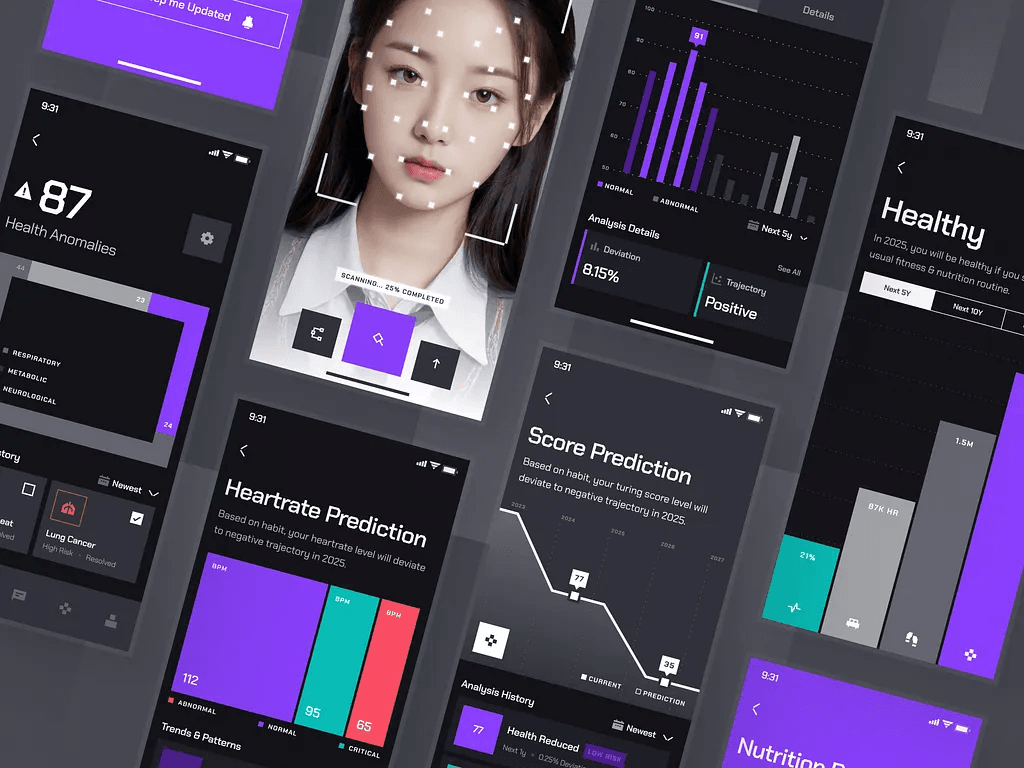
For example, AI models can analyze data from wearable devices, electronic health records, and patient-reported outcomes. To predict the onset of chronic diseases like hypertension, diabetes, or chronic obstructive pulmonary disease (COPD).
By detecting these conditions early, healthcare providers can intervene sooner. Potentially preventing long-term complications and improving the quality of life for patients.
AI in Treatment and Personalized Medicine
- Personalized Treatment Plans: AI analyzes patient data (genetics, medical history) to recommend individualized treatment plans. Improving treatment precision and reducing side effects.
- Accelerated Drug Discovery: AI identifies promising drug candidates and predicts their effectiveness, speeding up the drug development process.
- Immunotherapy for Cancer: AI analyzes genetic and molecular data to determine the most effective cancer treatments, increasing the chances of success.
- Precision Surgery: AI-powered robotic systems guide surgeries, enhancing precision and reducing invasiveness, leading to faster recovery times.
- Chronic Disease Management: AI helps manage conditions like diabetes by using real-time data from devices (e.g., insulin pumps). To adjust treatment, improving long-term care.
The Future of AI in Healthcare
The future of healthcare is incredibly promising, with advancements expected to revolutionize the industry even further. As AI technology continues to evolve, it will likely lead to even more sophisticated applications. Transforming how healthcare is delivered across the globe.
Expanded Role in Diagnostics:
AI will continue to improve diagnostic accuracy, enabling earlier detection of diseases with even greater precision. Expect AI to integrate more advanced imaging techniques, genetic data, and even environmental factors to provide highly accurate predictions.
Precision Medicine:
As more personalized treatment options become available, AI will play a pivotal role in developing tailored therapies. The integration of AI with genomics will make precision medicine more accessible. Ensuring treatments are highly specific to an individual’s genetic makeup.
AI-Driven Drug Discovery:
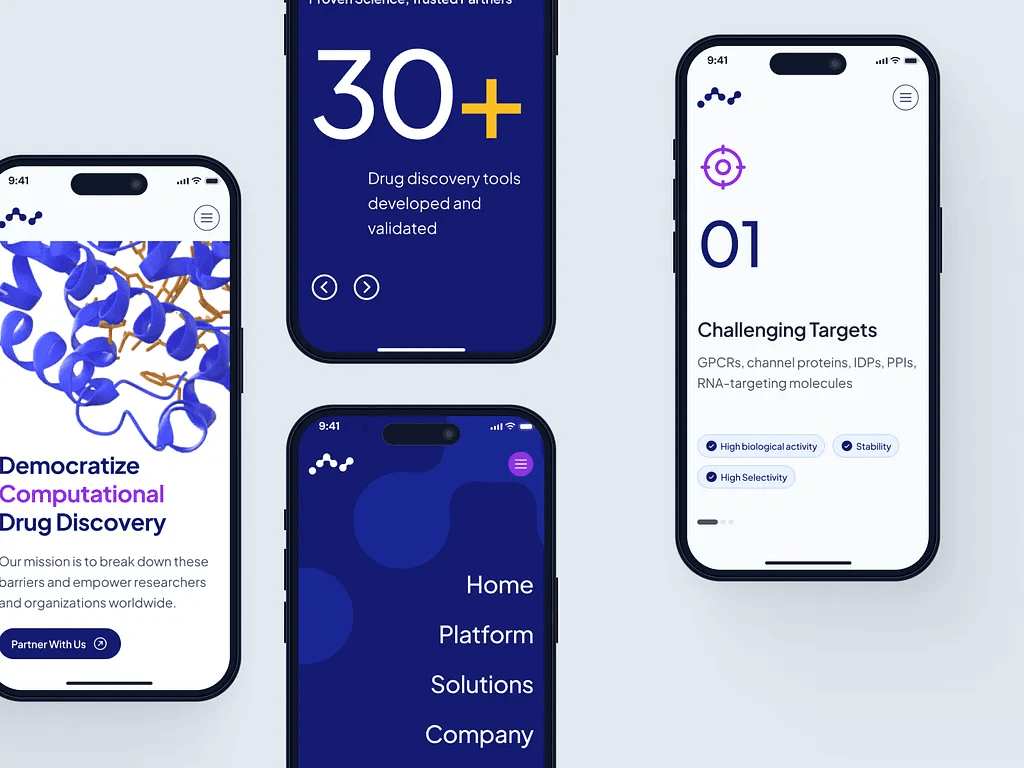
AI’s role in drug discovery will continue to accelerate, making the development of new therapies faster and more cost-effective. AI could help create personalized drugs designed for specific patient groups, improving treatment outcomes significantly.
Healthcare Automation:
Routine administrative tasks like scheduling, billing, and patient data management will automate increasingly. This will free up healthcare professionals to focus more on patient care, improving efficiency and reducing costs.
Virtual Health Assistants:
AI-powered virtual assistants will become a common tool in healthcare, offering 24/7 support for patients. From answering health queries to reminding patients to take their medications. These systems will continue to evolve, providing a more interactive, personalized healthcare experience.
Ethical and Regulatory Advancements:
As AI becomes more integrated into healthcare systems. There will be a growing emphasis on ethical considerations, such as data privacy and patient consent. Governments and organizations will focus on developing clear regulations to ensure the responsible use of AI in healthcare.
Conclusion
AI is undoubtedly transforming the healthcare sector, providing solutions that improve the quality, efficiency, and accessibility of care. From diagnostic tools that improve accuracy to personalized treatment plans that enhance patient outcomes. AI is making healthcare smarter and more efficient.
As we look to the future, the integration of AI will continue to redefine the healthcare landscape. Offering innovative solutions to long-standing challenges.
However, as AI becomes more integrated into healthcare systems. It is essential to address ethical concerns, ensure proper regulations, and focus on human-AI collaboration.
The promise of AI in healthcare is immense. And its continued evolution will undoubtedly lead to a healthier, more accessible world for patients and healthcare providers alike.
Hire DianApps for any healthcare app development services and we shall use the most prompt Artificial Intelligence capabilities to make your app versatile and diverse while equally competitive to the modern standards.


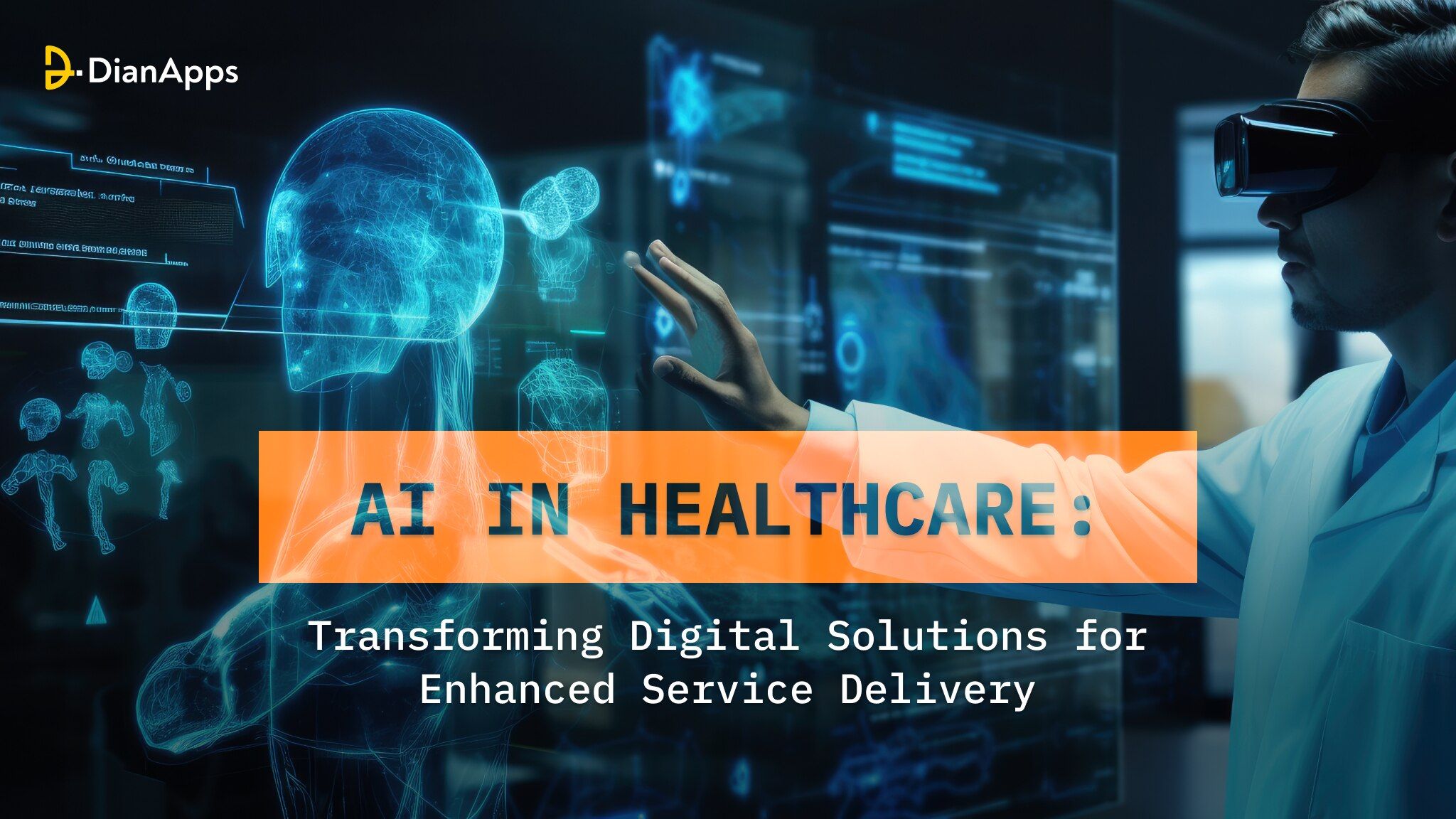







Leave a Comment
Your email address will not be published. Required fields are marked *